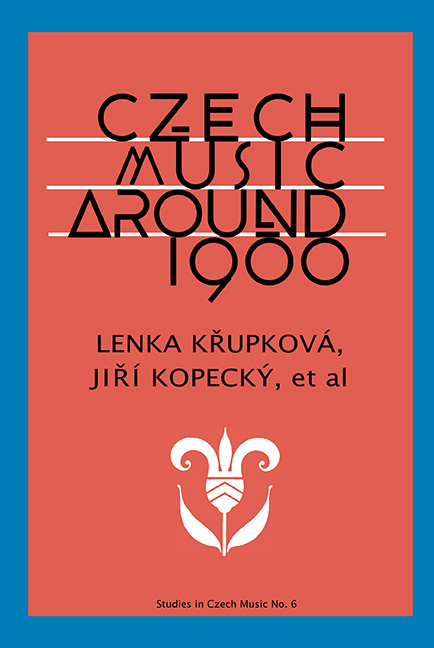Book contents
- Frontmatter
- Table of Contents
- Introductory Remarks on the Conception of This Book
- Flowers in the Graveyard, Tombstones in the Garden
- The “Other World” of Music at the Turn of the Century
- In the Footsteps of Tradition: The Spirit of Romanticism
- Czech Music at the Heart of European Music round 1900
- The Clash with Compositional Issues of European Music
- The Concept of Multi-Movement Structure within a Single Movement in the Music of Vítězslav Novák
- Heritage and New Paths in the Piano Sonatas of Vítězslav Novák and Leoš Janáček
- Josef Suk's Ripening and the Birth of the Czechoslovak Republic
- The Consequences of Conflict in the Czech Musical World: Zdenek Fibich as a Point of Contention in Novák's Polemics with Nejedlý
- Index
- List of Illustrations
- About the Authors
- List of Sources Cited
The Consequences of Conflict in the Czech Musical World: Zdenek Fibich as a Point of Contention in Novák's Polemics with Nejedlý
from The Clash with Compositional Issues of European Music
- Frontmatter
- Table of Contents
- Introductory Remarks on the Conception of This Book
- Flowers in the Graveyard, Tombstones in the Garden
- The “Other World” of Music at the Turn of the Century
- In the Footsteps of Tradition: The Spirit of Romanticism
- Czech Music at the Heart of European Music round 1900
- The Clash with Compositional Issues of European Music
- The Concept of Multi-Movement Structure within a Single Movement in the Music of Vítězslav Novák
- Heritage and New Paths in the Piano Sonatas of Vítězslav Novák and Leoš Janáček
- Josef Suk's Ripening and the Birth of the Czechoslovak Republic
- The Consequences of Conflict in the Czech Musical World: Zdenek Fibich as a Point of Contention in Novák's Polemics with Nejedlý
- Index
- List of Illustrations
- About the Authors
- List of Sources Cited
Summary
From the very outset, Zdeněk Nejedlý critically observed Vítězslav Novák's compositional career. Whereas Nejedlý generally evaluated the latter's early compositions from the 1910s favorably if critically, starting with Novák's cantata Svatební košile (The Wedding Shirts, 1913) and in particular his operas (1914-26) Nejedlý's negative assessment of the composer took over.
The spectacular celebration of Novák's sixtieth birthday culminated with productions of all his stage works in Prague's National Theatre in December 1930. During the preparations, the composer got involved in a pointed conflict with Otakar Ostrčil, who at that time worked as the head conductor of the National Theatre's Opera. Their first disagreement was due to Novák's operas being postponed until December, because it was decided that Fibich's operas would be introduced earlier, in the fall of the same year. Consequently, there was very little time left to rehearse the productions; Novák himself considered the production of all his stage works within three weeks absurd. The last straw in the clash of the two men was Ostrčil's decision about the number of rehearsals of Novák's operas Karlštejn (The Karlštejn Castle) and Zvíkovský rarášek (The Imp of Zvíkov), which Novák felt was totally inadequate. He announced to Ostrčil and the National Theatre ensemble his withdrawal from the productions of all his operas, both rehearsals and stagings. He remained faithful to his decision and never compromised it, even when President T. G. Masaryk was present at a staging of his Karlštejn. Just before completion of performances of Novák's operas, Ostrčil published a defense of his conducting work in print in reaction to negative reviews of certain productions. This was accompanied by an explanation of the objective obstacles that the National Theatre ensemble had needed to overcome during the rehearsals. Novák followed suit and also reasserted his earlier statements in print, escalating them even further. Several further confrontations followed in the same vein, presented in the daily papers. In order to sufficiently develop his argument, Novák did not hesitate to publish a book at his own expense, entitled Vítězslav Novák contra Otakar Ostrčil (Vítězslav Novák vs Otakar Ostrčil). He described in detail the whole history of the conflict, starting with the failed staging of Lucerna (The Lantern) and finishing with the jubilee production of his stage works.
- Type
- Chapter
- Information
- Czech Music around 1900 , pp. 283 - 294Publisher: Boydell & BrewerPrint publication year: 2017
- 1
- Cited by



